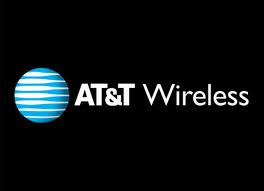
att wirelesshe carrier went onto to say that this merger was tantamount to a "government bailout" of AT&T: "In effect, AT&T is simply seeking a government bailout for problems of its own making and expects the cost of the bailout to be shouldered by American consumers. Instead of paying Deutsche Telekom $39 billion, AT&T could invest a fraction of that amount to expand its LTE deployment to nearly all Americans. But rather than respond to the market demands of a competitive industry, AT&T has chosen to eliminate competition and transform a competitive market into a duopoly." We hate to point out pesky little things called details.
but AT&T spending its own money to buy an already built network is not the same thing as the United States giving Goldman Sachs $12 billion to keep it afloat ... just sayin'. Sprint says it fears that AT&T and Verizon will set prices like dueling mafia families coming to agreement on how to divvy up their territories. Sprint insists that this imagined price setting would drive up costs for the consumers and allow the two to increase rates for backhaul services, the fees that allow carriers to pass traffic on each other's networks. Bigger still, Sprint argues that the two would lockout access to the handsets makers, who would be forbidden from allowing other carriers to sell their latest, greatest devices.s for AT&T's argument that it needs T-Mobile to increase access to wireless spectrum, Sprint says pshaw. The company argues, "AT&T has the largest licensed spectrum holdings of any wireless carrier. AT&T also is the largest holder of unused spectrum, with 40 MHz, on a population-weighted nationwide basis, of unused or underutilized AWS, 700 MHz, and WCS spectrum.
AT&T could use this reserve of spectrum to improve service for its customers, but has chosen instead to warehouse it for future services. Moreover, AT&T has repeatedly reassured investors that it has the spectrum and network capacity it needs to meet the growing demand for data services." Sprint makes some valid points. Then again, while less competition isn't good for consumers, it's still hard to feel sorry for Sprint. The company is forced to note in the footnotes of the formal document that "Clearwire holds rights to more than 100 MHz of 2.5 GHz spectrum" and that Sprint sells Sprint-branded capacity from Clearwire’s network and "holds an ownership stake in Clearwire."
No comments:
Post a Comment